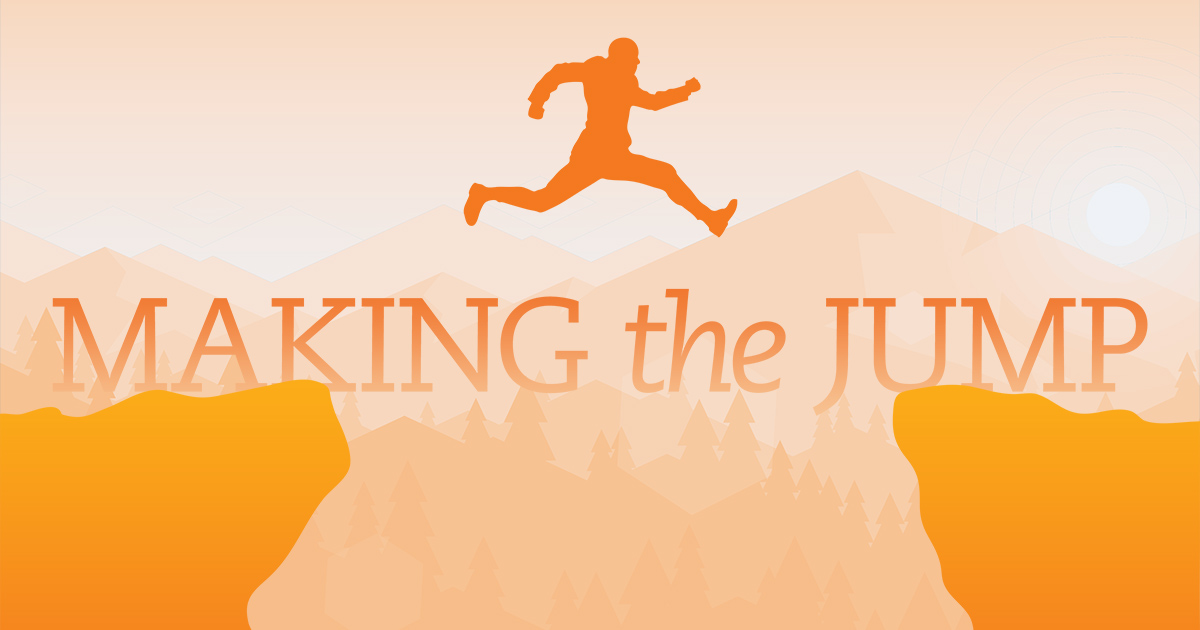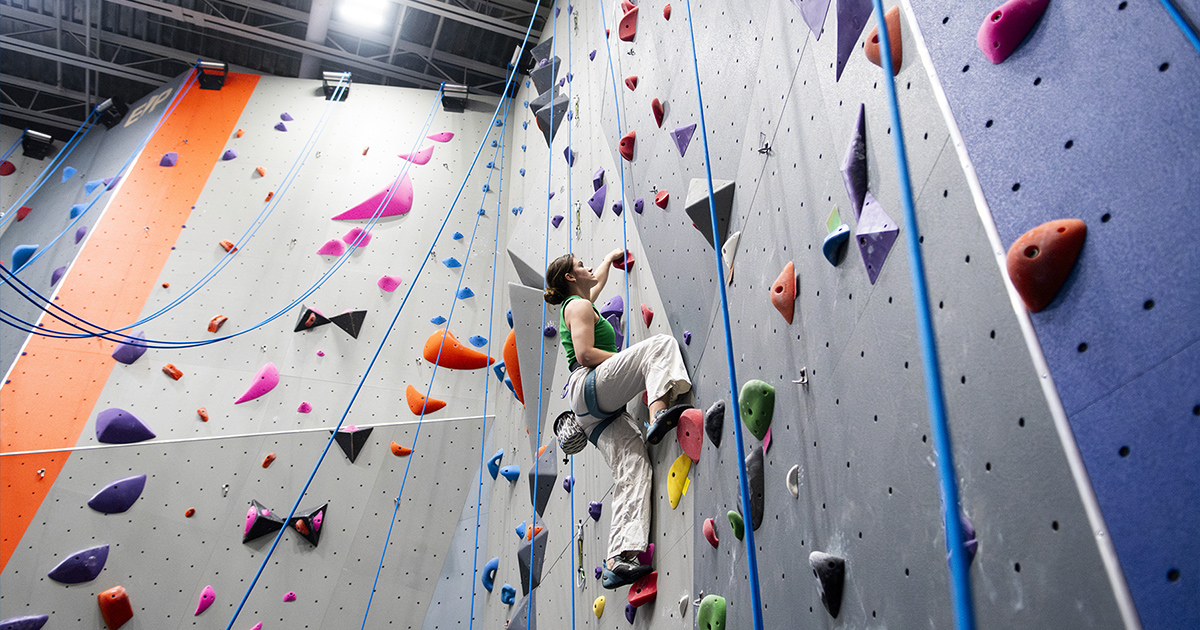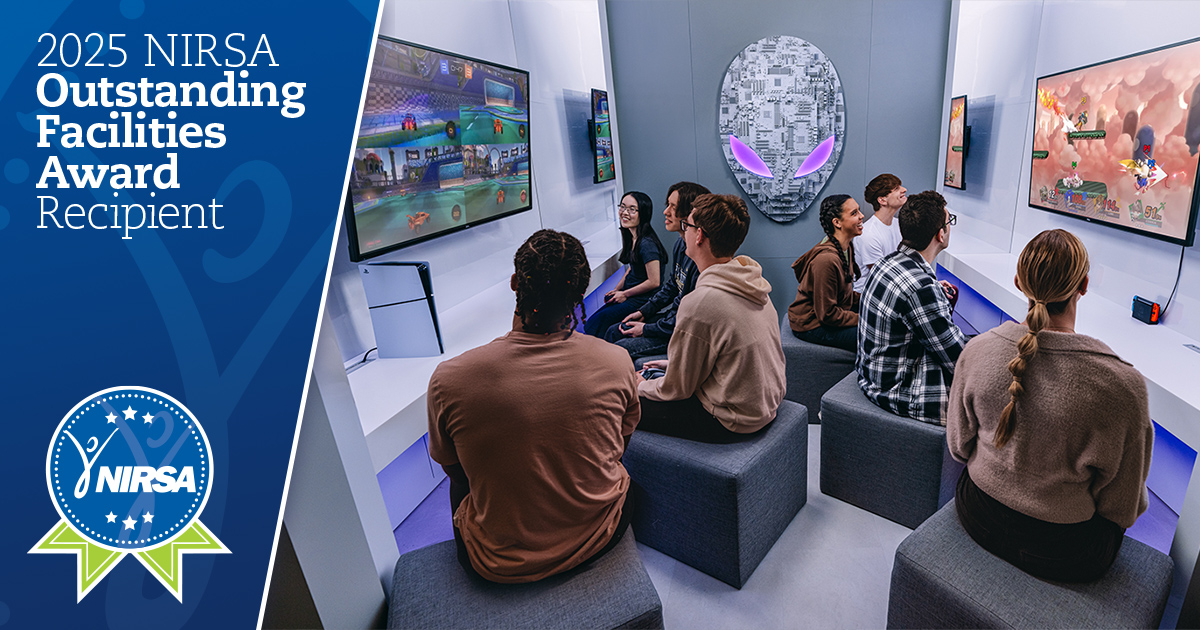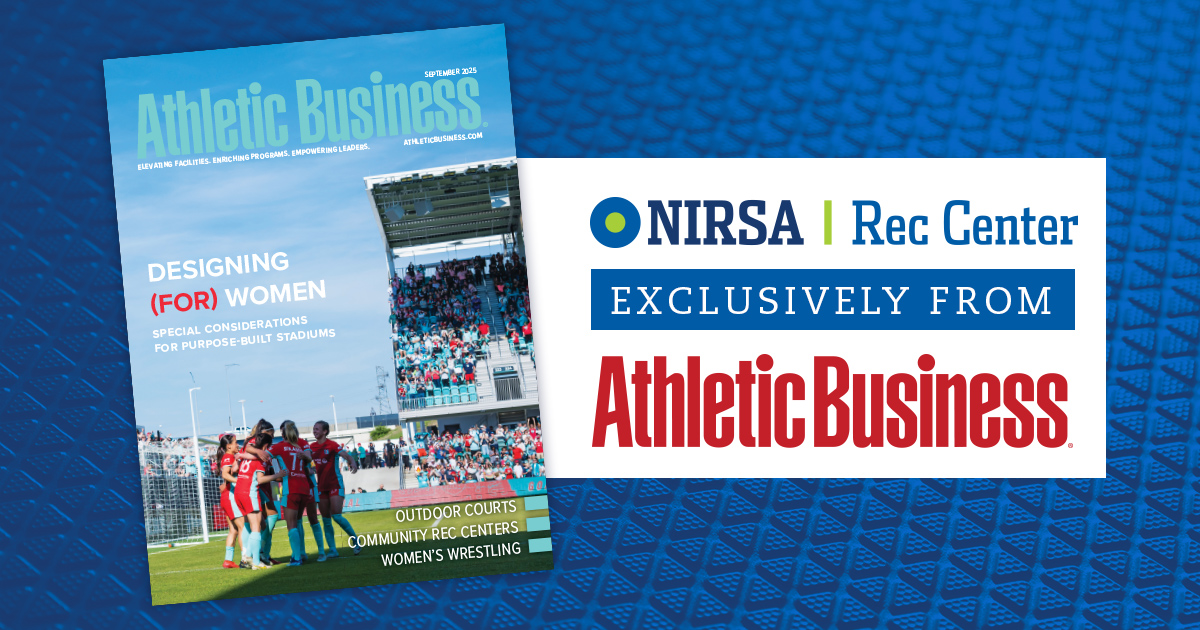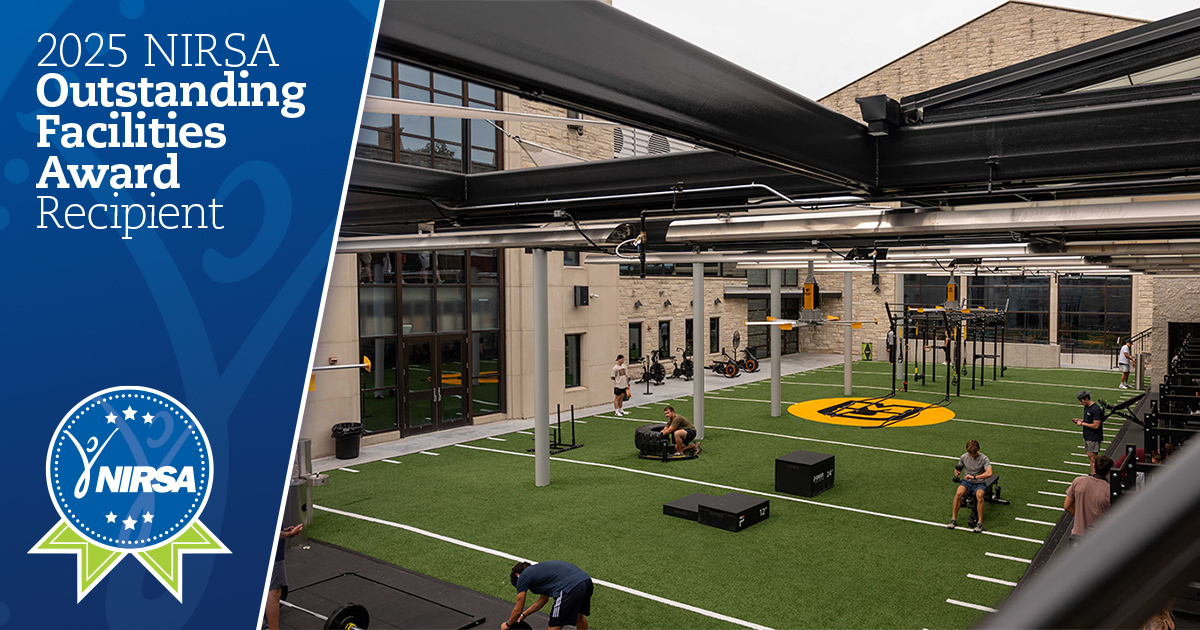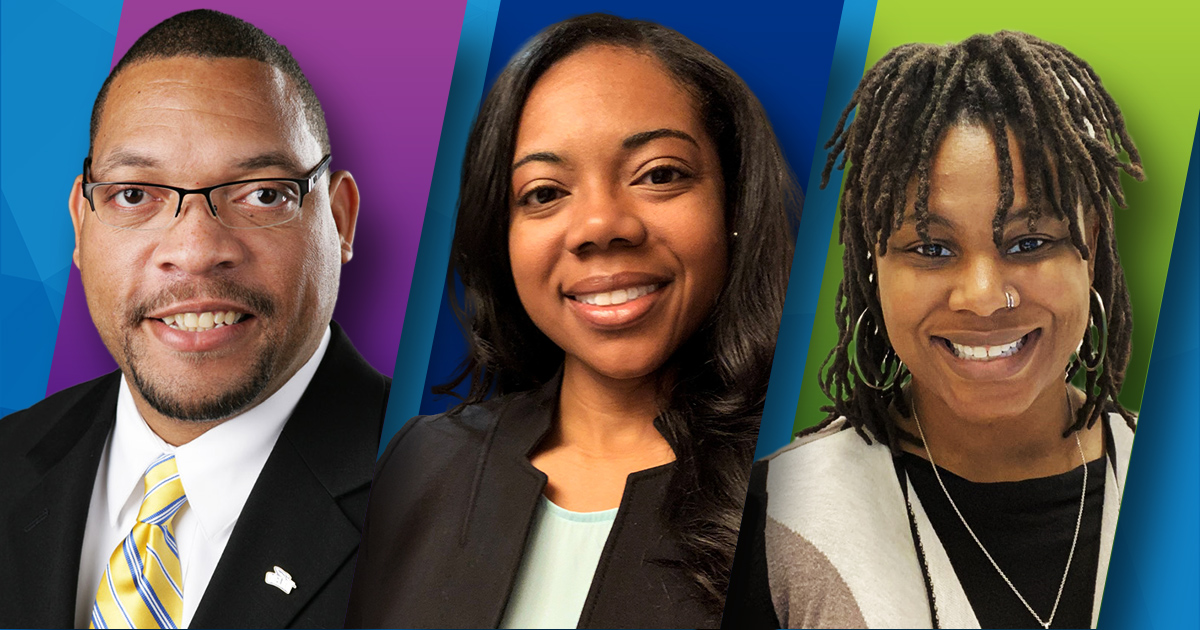I was first introduced to the field of campus recreation as an undergraduate college student. After finding myself dissatisfied with other part-time jobs, I started lifeguarding and teaching swimming lessons at Bowling Green State University’s (BGSU) Student Recreation Center. This is how I started my career in campus recreation. I quickly realized, even as a college student, how different it was from my other part-time jobs—including my previous experiences lifeguarding aquatic facilities.
The department that I worked for had an emphasis on this strange concept called “college student development” where they seemed to invest in our professional growth. Not only that, but there were these weird theories around the concept like Astin’s College Student Development Theory, Kuh’s Student Engagement Theory, Tinto’s Student Integration Model, and Chickering’s Seven Vectors of Development. I thought, who were these people and why have I not learned about these theories until now?
I have come a long way from lifeguarding at BGSU’s Student Recreation Center. Since then, I’ve served as a graduate assistant at BGSU, an assistant director at Indiana State University (ISU), and as assistant director at the University of North Carolina Wilmington (UNCW). Each position has contributed to my professional development, and I have acquired several skills that I still utilize to this day.
I have shared various observations on the similarities and differences between a campus rec practitioner and an academic in my recent articles of this series.
However, as a read Michael Popke’s wonderful article in a recent edition of Athletic Business, “How Rec Experience Helped Three Students Find Careers,” I could not help but relate to each of those students’ experiences. Then I realized that the transferrable skills I learned as a professional in campus recreation have been vital in my faculty position at Lehman College as well—especially when COVID-19 hit New York City.
Administrative work
Administrative work is one of those responsibilities we all have as campus recreation professionals. We learn this very early on as undergraduate student employees. Reports, checklists, inspections, evaluations, timesheets, etc. are just part of the job. This type of administrative work continues when we step into the professional world after graduation. The paperwork, physical or electronic, does not stop.
In campus recreation, many of us are responsible for tasks such as scheduling, interviewing/hiring/training paperwork, strategic planning, observations and evaluations, and payroll. In addition to being an assistant professor at Lehman College, I am also the undergraduate director of our program. Many of the administrative skills I acquired as a professional in campus recreation have contributed to my success in these positions. I am responsible for scheduling course offerings, assigning instructors to course offerings, observing and evaluating instructors, strategic planning, report writing, and serving as support for all of our students and instructors.
Heather Sanderson, an assistant professor at Meredith College, has also brought some of her administrative skills into the classroom. “I teach three ESS clinical courses in which students are conducting exercise tests and creating exercise programs for the Meredith community,” she says. “In addition, I have my students write reflection and observation papers on their experiences in the field. This is very similar to student evaluations and reflections done with our student employees in campus recreation.” The administrative work we do is only the beginning. Many of us continue to focus on attending conferences and networking—and we encourage our students to as well.
Conferences and networking
I had my first experience as a NIRSA Annual Conference attendee in Minneapolis in 2007 as a first semester graduate assistant. The experience was eye opening for me. As I looked on, I was amazed at how many people from all over the country had such great connections and friendships. I thought, how is everyone so close when they only see each other once or twice a year? After almost fifteen years in campus recreation, I understand. It takes time, but also effort. You start presenting and working on committees together. You find others with your same passions. You network. This has been a vital skill as a faculty member.
I still attend and present at conferences. I still reach out to practitioners and researchers in the field to work on projects we are passionate about. I still accompany students to conferences and introduce them to possible internship and other professional development opportunities. Heather adds that she teaches her students the “how” of networking. She states, “For my students—and specifically students I advise—I spend time teaching them how to seek out professional contacts, ways to communicate and how to follow up. I teach a leadership/management course in ESS in the fall and I have the students interview professionals and evaluate their ESS organization.” She goes on to say, “I say this because so much of what I learned working in campus recreation has been the cornerstone of content in this course.”
Jill Sturts, Assistant Professor of Recreation and Leisure Studies at Virginia Wesleyan University, adds, “I have been successful in creating and nurturing relationships with agencies to provide volunteer opportunities and internship opportunities for students. I have also utilized opportunities to incorporate my colleagues from campus recreation into courses as guest speakers or evaluators via Zoom.” Growing our students professionally nurtures much stronger relationships with them. So when life happens, we’re also there for them on a more personal level.
Empathy
Student affairs professionals have a lot of contact with students, especially our student employees. Sometimes more contact with them than their professors. Many of them see us as their leaders and mentors; we serve as a resource of support. I can recall many of my own student employees sitting in my office asking me for personal and professional advice. Honestly, some just needed someone to talk to. Side note: Always have a box of Kleenex on your desk. My favorite part of working in student affairs has always been being that person that students trust enough to speak to on a more personal level.
Laura Morris, assistant professor at the University of North Carolina Wilmington, also feels that her time as a campus recreation professional lent to her experience in student development. “I think in campus rec and student affairs you typically enjoy students and enjoy positively impacting their development,” she says. “I still love students and my mentoring skills are due to my background in campus rec.” Now, many of our students here in NYC are experiencing struggles that I could never have imagined. So, I find myself back in my comfortable role of leader, mentor, advisor, and listener more so than as a professor.
I feel being empathetic to my students while also maintaining academic integrity and rigor has directly contributed to my time as a campus recreation professional. During the pandemic, we have had students lose their jobs—and those who did not were considered essential workers in the healthcare field. These students were working on the frontlines while also struggling to go to school. Unfortunately, many students would be forced to reflect on losing family members, co-workers, and patients to the pandemic.
As soon as COVID-19 hit and NYC began to shut down, my student development skills went into high gear. Jill Sturts reflects this same feeling. “My experiences as a faculty member have been interesting to say the least! When we went remote in March, it was a quick pivot, and my courses did not initially lend themselves to virtual formats. However, I quickly learned that I really needed to consider what students were going through as they moved home,” she says. “For example: Did they have responsibilities in their homes caring for siblings or other family members? Did they need to work to help their families? Did they have to share a device? Was their internet connection stable? Did they have a device with a camera and microphone that worked? Were they going back to an unstable family environment? I would say that last spring, I focused a bit less on content and a bit more on emotional health and wellbeing. I was also home with three small children and helping a first-grader with virtual learning, so the demands were intense at home for me too.”
I think being familiar with student development theory and empathy in our positions in campus recreation has been vital in our faculty positions. I’m sure that Heather, Laura, and Jill would agree with me when I say that it gives us great pride to have learned such transferrable skills during our time in campus recreation.
Conclusion
As I reflect on Michael Popke’s article, I am thankful for all my experiences in campus recreation from undergraduate student to graduate student to professional. I think about all my mentors who taught me so much. COVID-19 has been a pivotal time in my career, as I am sure it has been for all of us. The resiliency I have developed through my experiences has provided me with the skills to continue my work as a faculty member.
We have all had to adapt to this profound time and adapt the skills we have learned so that we can be that person our students and colleagues can look to for assurance and guidance. So, we continue our work. We continue to complete our administrative tasks; continue to attend, present, and network at conferences; and continue to practice empathy with our fellow colleagues and students. That feeling of responsibility to my own faculty members and students in our program stems from campus recreation. So, my advice here? Keep going. Keep planning and completing your reports. Keep inspiring students to network and grow. Keep being that person that your students need. Keep growing and stay passionate. What you have learned so far you will use wherever you decide to take your career.
- For more information, NIRSA members are encouraged to reach out through the Current, Future, and Aspiring EdDs and PhDs community in NIRSA Connect.
- If you are interested in highlighting your campus or a NIRSA member’s achievements on your campus, pitch us your ideas.
Dr. Jacob Eubank, EdD is currently Assistant Professor - Recreation Education & Therapy at Lehman College of City University of New York (CUNY). You can email him at jacob.eubank@lehman.cuny.edu.


